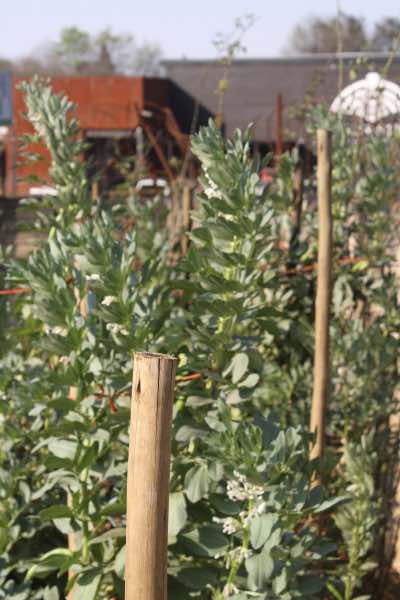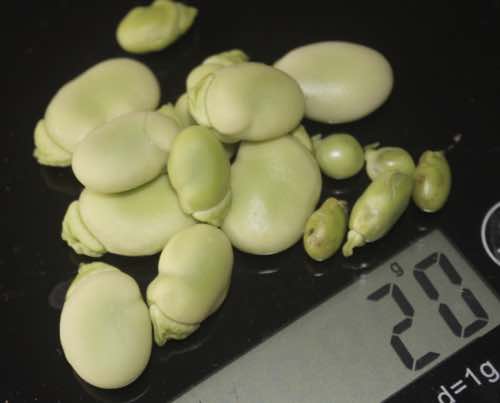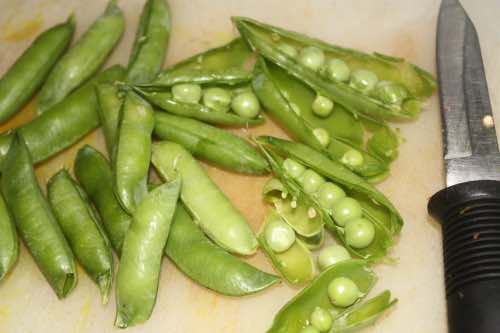Pesticides increase the risk of cancer
Pesticides increase the risk of cancer for those involved in agriculture but also the whole community; on a par with smoking in some people heavily exposed.
Researchers after studying the prevalence of certain cancers in different communities in the US found that those living and working in the corn belt of the Midwest were particularly at risk. Lymphomas, leukaemia and malignant tumours of the bladder were especially high.
Pesticides have in the past been connected to other cancers too, particularly of the colorectal region of the bowel and the pancreas; and neurological conditions such as Parkinson's Disease.
Corn
On a personal note we grow and enjoy a fairly large amount of corn from a village garden each summer; more than 500 plants. The seedlings have to be weeded very thoroughly at least once; after that they shade out the competition.
That's absolutely impossible on a large scale; so farmers use weedicides such as Roundup with genetically modified seeds that are resistant to the poison.
Top-grub and other stalk borers[2] can destroy up to 80% of the production. Insecticides are sprayed on the plants by the commercial farmers. Residues remain in the corn and are consumed by the end user; this applies of course to all food, not only maize.
Pesticides compared to smoking
The researchers found that heavy pesticide exposure caused a 2.5 times greater risk of non-Hodgkin lymphoma than smoking, for example; and a 19% increased chance of dying from leukaemia.
Many toxic chemicals
The researchers were at pains to point out that we are exposed to many pesticides making it very difficult to isolate and denigrate just one; those for a herbicide for example and others for insects.
In addition we are all exposed to many different toxic chemicals on a daily basis. Nevertheless, farm workers and the people living in the Midwest were found to be particularly vulnerable.
If anything they were less likely to have their clothes dry cleaned than those living in NYC for example. Those solvents have been fingered as a major cause of the neurodegenerative conditions like Parkinson's Disease.
The Boland
The Boland is a particularly beautiful part of South Africa not far from Cape Town; many of the best wines are produced there.
We once personally toyed with the idea of retiring to one of the small villages in the Boland. Until driving through the area we realised the air was pungent with the fumes of fungicides being sprayed onto the grapes.
We made the right choices and stayed in our small village far from commercial agriculture and its pesticides.
Organic foods
There is increasingly a distrust of those claiming to be selling organic foods; we live in a lying and deceitful world.
Yet there is much merit in organic food, grown without the use artificial fertilisers and pesticides. You either have to get to know the farmers in your area or start planting seeds yourself.
Soil nutrients
One has to work hard to replace soil nutrients if one is not using commercial fertilisers; they in any case supply only a very small number of elements to the ground, generally nitrogen, phosphorus and potassium.
To supply the nitrogen naturally to the soil one has to grow legumes; rhizobia bacteria that are able to extract the element from the atmosphere attach to their roots. This enables beans and peas to synthesise amino acids for our benefit.
 Fava beans supply nitrogen to the soil
Fava beans supply nitrogen to the soilLegumes in general are the most important predictor of survival of older people; fava beans in particular are the only source of pharmaceutical amounts of dopamine, the happy hormone.
The soil wins from the nitrogen that legumes supply to the soil; we personally benefit from eating lentils, beans and peas because every 20 gram increase in consumption daily reduces all-cause of mortality by 8%[3].
 Just an extra 20 grams of legumes per day
Just an extra 20 grams of legumes per dayGreen peas too supply organic nitrogen to the soil; and enhance the wellbeing of the gardener adding good years to longevity.
 Green peas supply nitrogen to the soil
Green peas supply nitrogen to the soilTo supply the many other nutrients to the soil the gardener can build compost heaps, bring in animal manure and develop worm farms.
Organic pesticides
Avoidance of organic herbicides can only be provided by the sweat off the gardener's brow; corn and all vegetables have to be hoed until cover is reached, denying the weeds sunlight.
Crop rotation and leaving a bed fallow for a season also denies plant diseases.
The best organic insecticide is a flock of chickens; they eagerly seek out the grubs of the corn stalk-borer for food.
We should all be acquainted with the fruit with highest pesticide residues[4].
Vitamin D
The most serious worldwide pandemic is a vitamin D deficiency. Just fifteen minutes working in the garden with a hat on would provide sufficient in the summer months.
Chiropractic
The chiropractor is concerned about the overall wellness of his patients. Spinal manipulation is of no value to the person with a lymphoma from pesticides that increase the risk of cancer.
In any event growing one's own food without pesticides is good exercise and the vitamin D from sunshine means stronger bones.
Pesticides increase the risk of cancer
Pesticides increase the risk of cancer not only for farmer workers. Mindful chiropractic help means treating the whole person.
When browsing these links use right click and "Open Link in New Tab", or you may get a bad gateway signal.
- Home
- Right choices
- Pesticides Increase the Risk of Cancer
Did you find this page useful? Then perhaps forward it to a suffering friend. Better still, Tweet or Face Book it.
